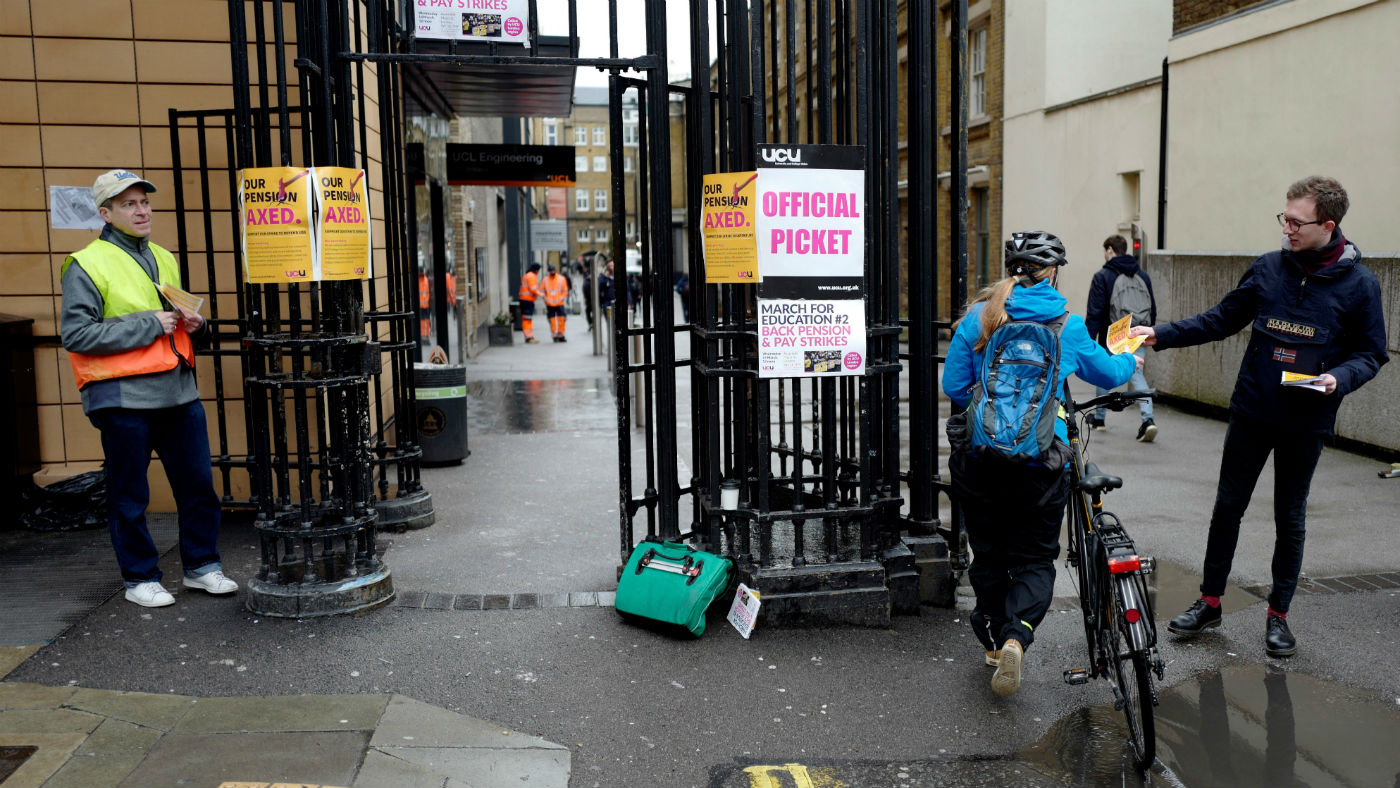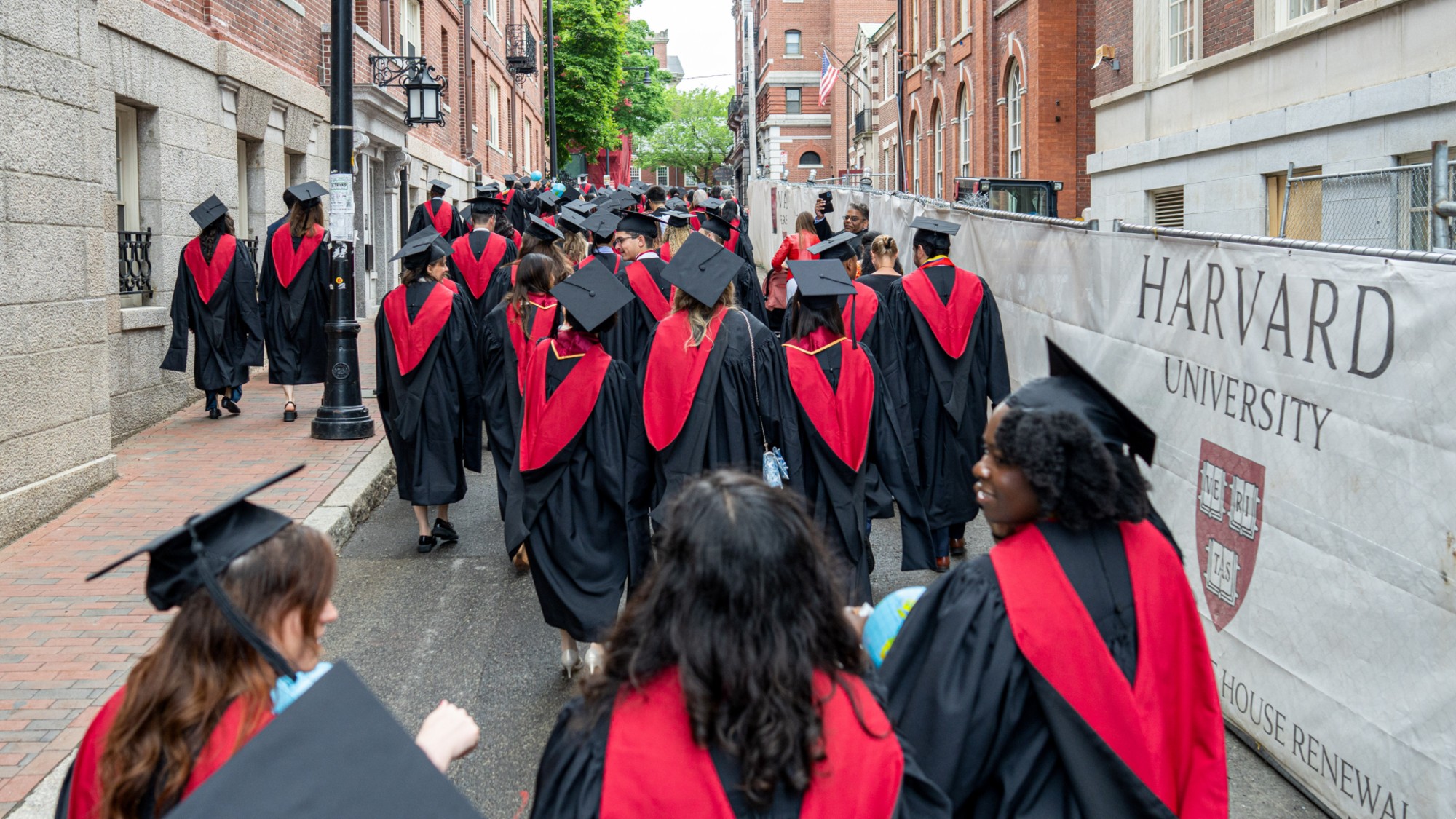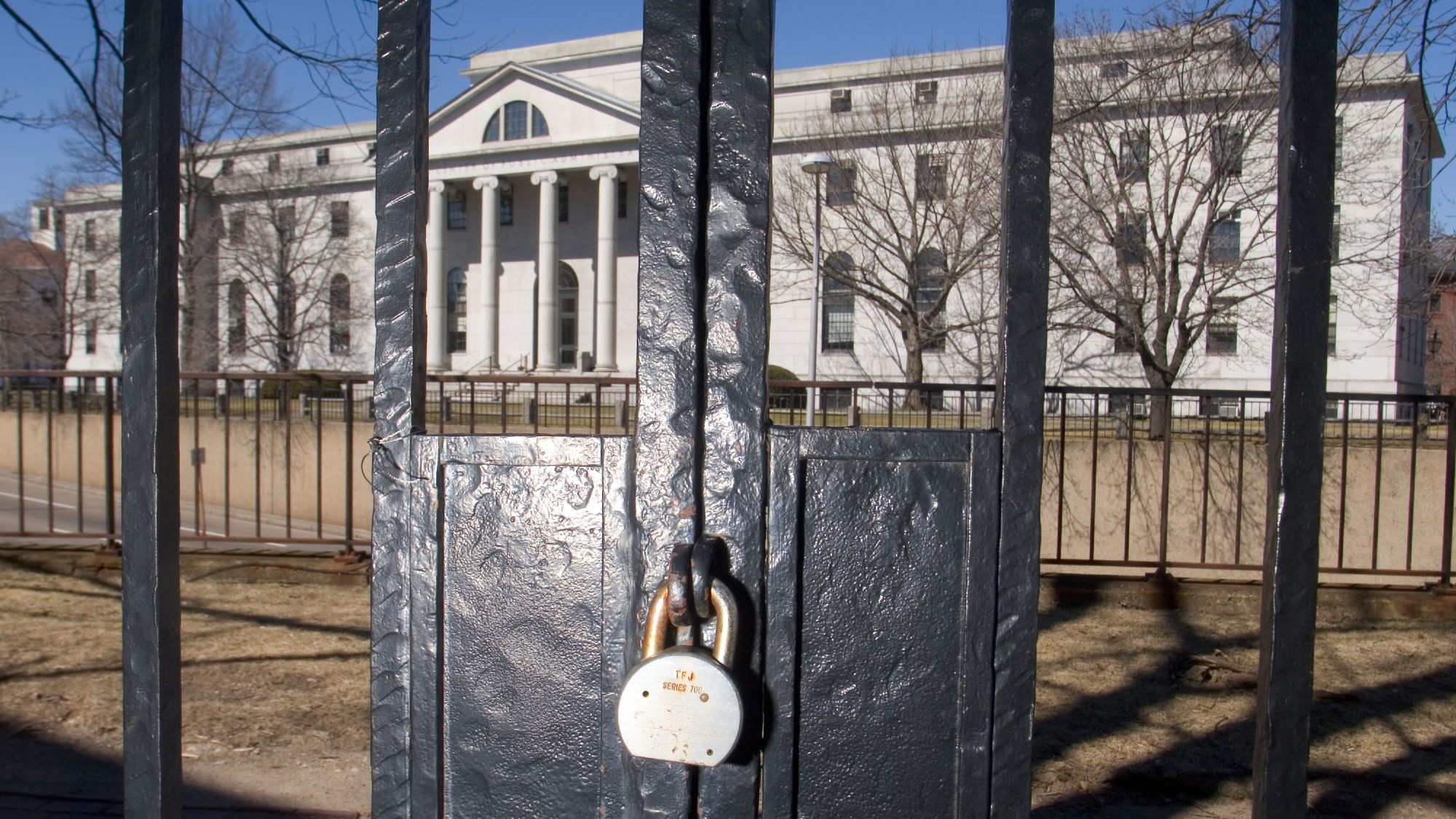Why university staff are going on strike - and how to claim compensation
Lecturers, librarians and other staff to walk out at 74 institutions from 20 February

A free daily email with the biggest news stories of the day – and the best features from TheWeek.com
You are now subscribed
Your newsletter sign-up was successful
Staff at 74 UK universities are going on strike for 14 days from Thursday, the latest action in a long-running dispute over pensions and other employment issues.
With strike days taking place on specific days over a four-week period, the industrial action will last into mid-March.
Staff believe they have no choice but to take industrial action to protect their livelihoods. But with students now paying £9,000 a year to earn their degrees, many feel the strike is unfair on them – and many will seek to claim compensation for lost teaching hours.
The Week
Escape your echo chamber. Get the facts behind the news, plus analysis from multiple perspectives.

Sign up for The Week's Free Newsletters
From our morning news briefing to a weekly Good News Newsletter, get the best of The Week delivered directly to your inbox.
From our morning news briefing to a weekly Good News Newsletter, get the best of The Week delivered directly to your inbox.
Who is striking?
Members of the University and College Union (UCU), which includes lecturers, librarians and technical staff at institutions the length and breadth of the UK.
A total of 74 institutions are taking part, from the University of Aberdeen in the north of Scotland to the University of Exeter in Devon. Socialist Worker gives a list of universities and dates.
Why are they striking?
A free daily email with the biggest news stories of the day – and the best features from TheWeek.com
This is the third strike in the current dispute: the first was in 2018 and the second took place last November and December.
The UCU cites five areas that have prompted industrial action but the main concern is the decision to shift pensions to a defined-contribution scheme, seen by the union as a cash-grab by investment fund managers and university management.
Some staff have accused the Universities Superannuation Scheme (USS) of fiddling its own valuation. Other issues prompting industrial action are pay rates, high workloads, casualisation of staff and equality.
What has industrial action achieved so far?
The 2018 strike was hailed as a victory for UCU members: the universities and the USS agreed to reconsider the valuation of the pensions and a Joint Expert Panel was set up by the UCU and Universities UK.
However, the UCU has since voiced fears that the process has been subverted and there are irregularities in the way it is being conducted.
Do all UCU members support the strike?
A large majority voted for industrial action last autumn but there is some dissent. An anonymous “lecturer at a Russell Group university” wrote in Times Higher Education that they and some colleagues were not supportive of the latest round of strikes, which they felt would create ill-will with students and management, and would not be walking out, despite backing industrial action overall.
How have the strikes affected students?
According to The Telegraph, around one million students were affected by last year’s strike. The paper claims there is evidence that that strike, taken in combination with the new walk-outs, means some students have missed so much tuition they will not be able to graduate this year and will have to repeat the year.
The Daily Mail claims some students have resorted to paying for private tuition.
–––––––––––––––––––––––––––––––For a round-up of the most important stories from around the world - and a concise, refreshing and balanced take on the week’s news agenda - try The Week magazine. Start your trial subscription today –––––––––––––––––––––––––––––––
When is the strike?
Not all of the institutions are sticking to the national strike dates (Socialist Worker has more details), but the majority will see walk-outs on 20, 21, 24, 25 and 26 February – and on 2, 3, 4, 5, 9, 10, 11, 12, 13 March. Generally speaking, staff will not strike on Fridays.
Can students claim compensation?
Yes, says student money website Save The Student. The first step is to approach your institution directly and ask for payback. If it refuses, the next step depends on where in the UK you are studying.
Complaints can be taken to the Office of the Independent Adjudicator for Higher Education (OIA) in England and Wales, the Scottish Public Services Ombudsman (SPSO) or the Northern Ireland Public Services Ombudsman (NIPSO).
“If the ombudsman thinks your complaint is justified, they will then advise your university on what they should do next (i.e. whether or not they should offer students compensation and how much),” says the site.
-
 The ‘ravenous’ demand for Cornish minerals
The ‘ravenous’ demand for Cornish mineralsUnder the Radar Growing need for critical minerals to power tech has intensified ‘appetite’ for lithium, which could be a ‘huge boon’ for local economy
-
 Why are election experts taking Trump’s midterm threats seriously?
Why are election experts taking Trump’s midterm threats seriously?IN THE SPOTLIGHT As the president muses about polling place deployments and a centralized electoral system aimed at one-party control, lawmakers are taking this administration at its word
-
 ‘Restaurateurs have become millionaires’
‘Restaurateurs have become millionaires’Instant Opinion Opinion, comment and editorials of the day
-
 American universities are losing ground to their foreign counterparts
American universities are losing ground to their foreign counterpartsThe Explainer While Harvard is still near the top, other colleges have slipped
-
 Where will international students go if not the US?
Where will international students go if not the US?Talking Points China, Canada and the UK are ready to educate the world
-
 Colleges are canceling affinity graduations amid DEI attacks but students are pressing on
Colleges are canceling affinity graduations amid DEI attacks but students are pressing onIn the Spotlight The commencement at Harvard University was in the news, but other colleges are also taking action
-
 Can Trump ban overseas students from US universities?
Can Trump ban overseas students from US universities?Today's Big Question President's decision to revoke Harvard's access to database for admitting international students 'drastically escalates' the dispute
-
 America's academic brain drain has begun
America's academic brain drain has begunIN THE SPOTLIGHT As the Trump administration targets universities and teachers, educators are eying greener academic pastures elsewhere — and other nations are starting to take notice
-
 Is academic freedom in peril?
Is academic freedom in peril?Today's Big Question Faculty punishments are on the rise
-
 Anti-Israel protests impact a Jewish-rooted university
Anti-Israel protests impact a Jewish-rooted universityThe Explainer The president of Brandeis University resigned as a result of multiple factors, including his handling of recent protests
-
 Why are so many colleges closing?
Why are so many colleges closing?Today's Big Question 'Enrollment cliffs' and higher tuition both play a role